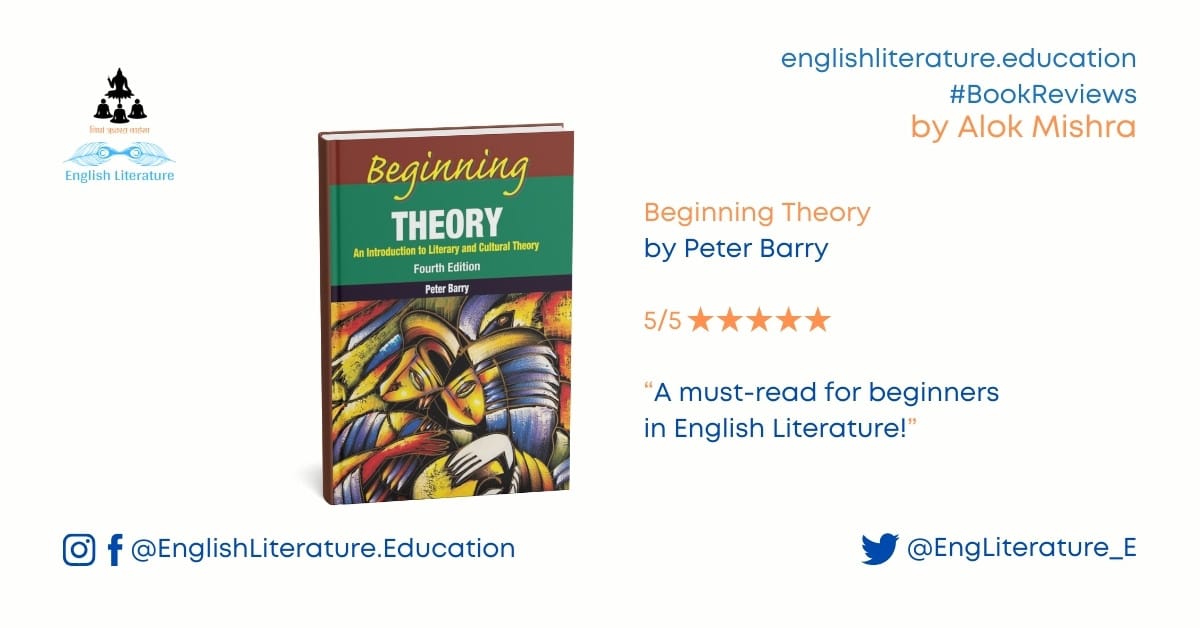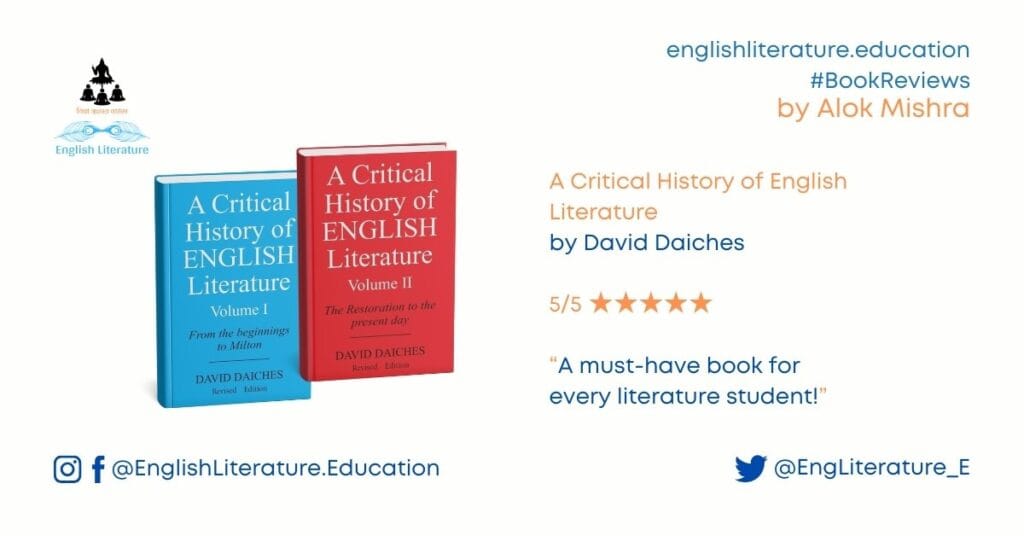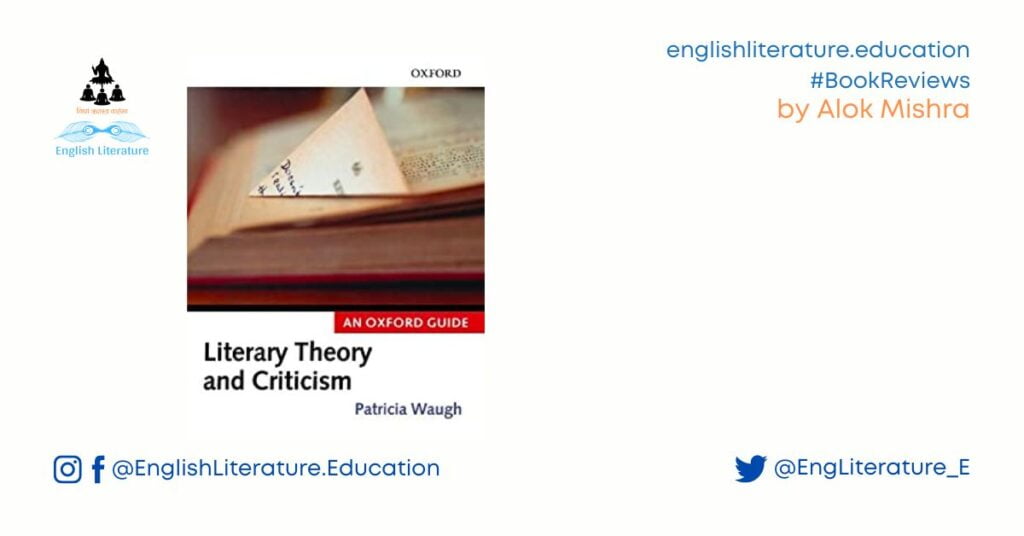Let us begin with a question. What would you like in a book that you would use to study something you know very little? A friendly tone? A beginner-friendly discussion on various aspects? A comprehensive idea of the topics, including historical context and subsequent development? Well, if I may say, the demands might be infinite! And I know from my experience that English literature students dearly look out for some helpful book to begin studying literary theory and criticism… from scratch, in a friendly textual environment, without the author’s expectations that ‘the reader’ has ‘some idea’ of ‘the things’ being discussed in ‘the book’. Am I right? So, let me make the announcement outright before I get into the details of this article. I am writing about Beginning Theory by Peter Barry, the only book suitable for beginners in English literature who want to understand literary criticism and theory. This book does not have any replacement! It is the only book you need if you are a beginner!
Convinced? If yes, you can get a copy of this book from Amazon India right now and begin studying rather than reading this academic book review. Click here to get a copy now.
Otherwise, if you want to learn more about the book, please read this review until the end. Hopefully, you will learn about its different qualities. All the best!
- Title: Beginning Theory: An Introduction to Literary and Cultural Theory
- Author: Peter Barry
- Publisher: Manchester University Press (Viva Books in India)
- Publication Date: First published in 1995; subsequent editions include updates and revisions (e.g., 4th edition published in 2017)
- ISBN:
- 4th Edition (2017): 978-1526121791 (Paperback)
- 3rd Edition (2009): 978-0719079276 (Paperback)
- Pages: Approximately 384 pages (varies by edition)
- Language: English
- Format: Paperback, Hardcover, and eBook
- Series: Beginnings (Manchester University Press series)
- Subjects: Literary Theory, Cultural Theory, English Literature, Criticism
- Audience: Undergraduate and postgraduate students, beginners in literary theory
- Key Features:
- Practical “STOP and THINK” activities
- Historical context for theoretical approaches
- Coverage of traditional and contemporary theories (e.g., ecocriticism, narratology)
- Emphasis on intensive reading and application
Peter Barry’s Beginning Theory: An Introduction to Literary and Cultural Theory is a seminal work in literary studies, offering a comprehensive yet accessible introduction to the often daunting world of literary and cultural theory. Designed primarily for students and beginners, the book distinguishes itself through its practical approach, clear structure, and emphasis on active engagement with theoretical concepts. Barry’s work is not merely a textbook but a “workbook” that encourages readers to think critically and apply theory to literary texts. This review will explore the book’s content, structure, writing style, and suitability for students, highlighting what makes it a standout resource in the crowded field of literary theory introductions.
Content and Structure
One of the most striking features of BeginningTheory is its thoughtful organisation and progressive structure. The book begins with an exploration of liberal humanism, the traditional approach to literary studies that dominated the field before the advent of modern theory. By starting here, Barry provides readers with a historical foundation, enabling them to understand how and why subsequent theoretical movements emerged as reactions to or developments of liberal humanism. This approach is convenient for beginners, as it situates literary theory within a broader historical and intellectual context.
From this foundation, Barry systematically introduces a wide range of theoretical approaches, including structuralism, post-structuralism, psychoanalytic criticism, feminist criticism, Marxist criticism, postcolonial criticism, and more. Each chapter follows a consistent format: a clear explanation of the theory, an overview of key figures and their contributions, practical examples of how the theory can be applied to literary texts, and “STOP and THINK” activities that encourage readers to engage actively with the material. This structure ensures that readers grasp the theoretical concepts and learn how to apply them in practice.
Another strength of the book is its selective coverage. Rather than attempting to be exhaustive, Barry focuses on specific questions, examples, and key essays, allowing for a more reflective and in-depth engagement with the material. This approach prevents the book from becoming overwhelming, particularly for readers new to the field. Additionally, the inclusion of newer trends, such as ecocriticism and narratology, ensures that the book remains relevant to contemporary discussions in literary studies.
Practical Approach and Teaching Philosophy
What sets Beginning Theory apart from other introductions to literary theory is its emphasis on practical application. Barry describes the book as a “workbook” rather than a traditional textbook, and this distinction is evident in the inclusion of “STOP and THINK” activities. These exercises are designed to give readers hands-on experience with literary theory, encouraging them to grapple with its challenges and complexities. By actively engaging with the material, readers can better internalise the concepts and develop their interpretations of literary texts.
Barry’s focus on teaching and learning is another notable aspect of the book. He acknowledges that literary theory is often perceived as complex, not because of the material itself, but because of how it is presented. Barry adopts a student-centred approach to address this, using straightforward language and avoiding unnecessary jargon. He also introduces the SQ3R technique (Survey, Question, Read, Recall, Review) to guide readers in their intensive reading of theoretical texts. This method encourages readers to engage deeply with a few key texts rather than skimming many, fostering a more meaningful understanding of the material.
The book’s historical context further enhances its accessibility. Barry situates each theoretical approach within its historical and intellectual milieu, showing how different movements emerged in response to earlier ones. This contextualisation helps readers understand the evolution of literary theory and the interconnectedness of its various strands. Additionally, Barry’s inclusion of personal anecdotes and reflections adds a relatable dimension to the text, making it feel less like a dry academic treatise and more like a conversation with a knowledgeable mentor.
Writing Style and Accessibility
Barry’s writing style is one of the book’s greatest strengths. He employs a conversational and engaging tone, which makes complex theoretical concepts more approachable. The language is clear and accessible, with specialised terms explained when they are introduced. This approach is particularly beneficial for beginners, who may feel intimidated by literary theory’s often dense and abstract nature.
The use of a personal tone also contributes to its accessibility. Barry frequently shares his own experiences and reflections, offering readers a glimpse into his journey through literary theory. This personal touch not only humanises the subject but also reassures readers that grappling with theory is a process that requires time and effort. By acknowledging the challenges of learning theory, Barry creates a supportive and encouraging environment for readers.
Suitability for Students
Beginning theory is invaluable for English literature students, particularly those new to literary theory. Its accessible introduction to a wide range of theoretical approaches provides a solid foundation for further study. The book’s emphasis on practical application ensures that readers understand the theories and how to use them in their own analyses of literary texts.
Including historical context is another feature that makes the book particularly useful for students. By showing how different theoretical approaches have emerged and developed over time, Barry helps readers understand the broader intellectual landscape of literary studies. This historical perspective is crucial for avoiding a superficial understanding of theory and appreciating its relevance to contemporary literary analysis.
Peter Barry’s guidance on intensive reading is another asset for students. Barry’s advocacy for reading less widely but more deeply encourages readers to engage thoughtfully with theoretical texts rather than simply skimming them for surface-level understanding. The SQ3R technique provides a practical framework for this engagement, equipping students with valuable reading and study skills.
Finally, the book’s encouragement of independent thought is one of its most important contributions. Rather than presenting pre-packaged interpretations, Barry challenges readers to develop their understanding of literary texts. This emphasis on critical thinking and personal engagement is essential for fostering a deeper appreciation of literature and theory.
Conclusion
Peter Barry’s Beginning Theory is an exceptional introduction to literary and cultural theory. It offers a clear, accessible, and engaging overview of the field. The book’s practical approach, emphasis on teaching and learning, and inclusion of historical context make it an ideal resource for students and beginners. The book’s conversational tone, personal anecdotes, and focus on active engagement further enhance its accessibility and appeal.
While the book does not aim to be comprehensive, its selective coverage and reflective pace allow for a deeper and more meaningful engagement with the material. Including newer trends, such as ecocriticism, ensures that the book remains relevant to contemporary discussions in literary studies.
For English literature students, Beginning Theory is more than just a textbook; it is a guide and a companion that demystifies literary theory and empowers readers to think critically and independently. By combining theoretical knowledge with practical exercises, Barry ensures that readers understand the theories and how to apply them in their analyses of literature. Beginning Theory is a welcoming and invaluable resource in a seemingly intimidating and abstract field.
Click here to get a copy from Amazon India
Review by Alok Mishra for the English Literature Education platform
Beginning Theory by Peter Barry, a book review
- Narrative
- Content & Analysis
- Themes & Issues
- ELE Final Impression
Summary
A must-read book for any beginner in English literature who wants to understand literary theory and criticism. It’s that simple!



